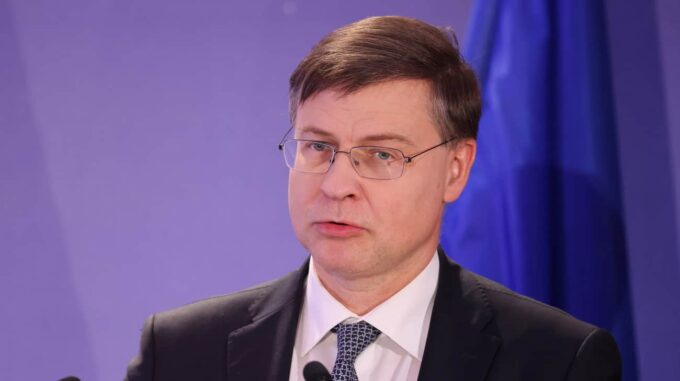The European Union is preparing for a new stage of strengthening restrictive measures against Russia, planning to launch the 18th package of sanctions in response to Moscow’s prolonged aggression and actions

This was announced at a press conference following the EU Economic and Financial Affairs Council meeting in Brussels by Vice-President of the European Commission and European Commissioner for Economy, Valdis Dombrovskis. According to him, work on the 18th sanctions package will begin immediately after completing work on the 17th. Dombrovskis assured that the European Commission is clearly committed to continuing the pressure of sanctions on Russia, implementing new mechanisms of restrictions and measures as part of this strategic course. He emphasized that the EU plans to further tighten sanctions, focusing on a deeper impact on Russia’s key sources of income. Discussing potential areas for additional pressure, the Vice-President of the European Commission noted that Russia’s largest profitable source is the export of fossil fuels, especially oil and gas. That is why the EU’s main effort currently remains the restriction of Russian coal imports, as well as introducing limits on oil supplies. The European community, in cooperation with G7 partners, is actively working to establish a ceiling on the price of Russian oil to prevent illegal circumvention of the embargo through Russia’s shadow fleet. Dombrovskis also highlighted that Europe has presented a phased strategy to cease purchasing Russian natural gas, aiming to reduce dependence and deprive the aggressor country of an important source of funding. However, he added that Russia is seeking new consumers for its energy products, and while this helps reduce its income in the short term, these countries are paying much less than what European countries traditionally consumed. A significant role in countering Russian aggression is also played by Poland, which currently chairs the European Commission. The country’s Minister of Finance, Andrzej Duda, stated that the future of the Russian economy directly depends on energy exports — the main source of Kremlin’s revenue. According to him, the most effective strategy to limit Russia’s financial resources remains restricting fossil fuel exports. Duda emphasized that all previous sanctions and new initiatives by the European Commission are aimed precisely at this goal — reducing Russia’s profits through energy exports. This includes, among other things, the recent strategy to halt Russian natural gas supplies to the EU in several stages. At the same time, the Polish minister stressed that Europe continues working on adequate mechanisms to strengthen pressure on Russia, both through introducing new restrictions and improving their implementation. This is crucial to combat sanctions circumvention and prevent illegal evasion via various schemes and naval tactics. It is worth recalling that work on the 17th sanctions package began at the end of April, when EU representatives started discussing possible measures primarily aimed at increasing pressure on Ukrainian society and Moscow’s military machinery, as well as counteracting illegal fleets and shadow schemes for the movement of Russian goods. It was planned that this sanctions package could be adopted by May 20 during an EU foreign affairs session. Thus, the European Union has established and continues to pursue a strategic course of increasing pressure on Russia, especially through economic measures and restrictions aimed at halting war financing and disrupting Kremlin’s economic mechanisms. The coming weeks will show how effective these diplomatic and economic steps will be in reducing aggression and supporting peace and stability in the region.

